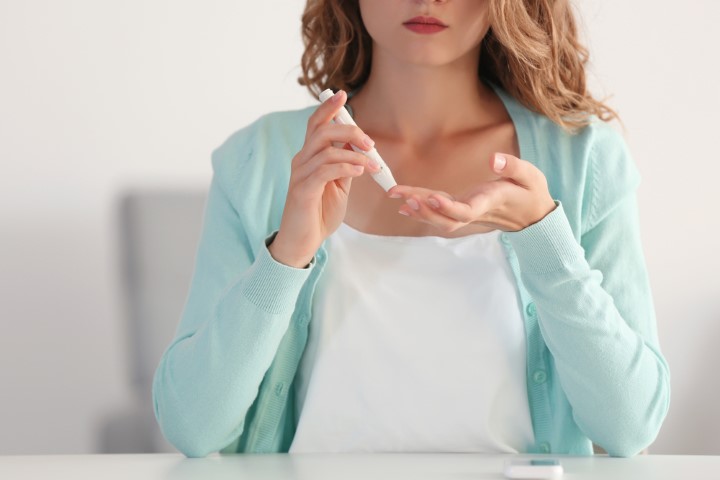Type 2 diabetes is a common condition, especially for women, in which there is excessive production of glucose in the blood. If not properly treated and managed diabetes can lead to blindness, kidney failure, nerve damage, higher risks of cardiovascular disease, and other serious health concerns. But did you know that diabetes can directly affect a woman’s reproductive health and wellness? It’s true. That’s why our board-certified gynecologists have taken some time to highlight some of the connections between diabetes and reproductive health.
Going through menopause isn’t easy for any woman, but it can be especially challenging for women with type 2 diabetes. During the perimenopause period, you will experience less frequent ovulation and fluctuations in your levels of estrogen and progesterone that your body produces. These hormonal changes can affect your blood glucose levels, which can be problematic for women with type 2 diabetes. Additionally, diabetes can make women more vulnerable to night sweats and other menopause symptoms.
There is also a strong link between diabetes and polycystic ovary syndrome (PCOS). According to the Centers for Disease Control and Prevention (CDC), PCOS is the leading cause of female infertility in the US, affecting more than 5 million women currently. But PCOS has also been associated with an increased risk of developing type 2 diabetes in recent years. A recent study published in the Endocrine Society’s Journal of Clinical Endocrinology & Metabolism states that a woman’s risk of developing diabetes is four times greater for women with PCOS. Additionally, the average age for a type 2 diabetes diagnosis for women with PCOS was 31, roughly four years earlier than the average age of diagnosis.
Lastly, diabetes can have negative effects on a woman’s sex drive over time. Vaginal dryness is a very common issue for women with diabetes. This is due to high blood sugar levels that harden the blood vessels in the vaginal wall. Women with diabetes may also experience less pleasure during sex. This is caused by blood sugar levels that affect the tiny blood vessels that bring blood to your nerves. If those nerves are not functioning properly, you can lose some feeling in your vagina leading to less satisfying sex.
For women with diabetes, it’s important to gain understanding of how their condition can affect every aspect of their life. Managing your diabetes is not only essential for maintaining general health, but for keeping up the best possible reproductive health and wellness. For more information please contact Gynecology Associates of Gwinnett today. During your appointment, board-certified gynecologist Dr. Kristine Gould can diagnose and offer treatment recommendations for a wide variety of gynecological health issues. You can also follow us on Facebook, Twitter, and Google+ for more news, tips, and details on our upcoming health & wellness events.


